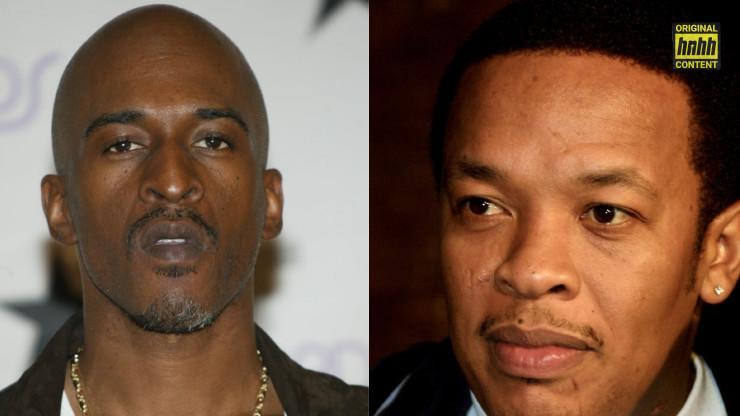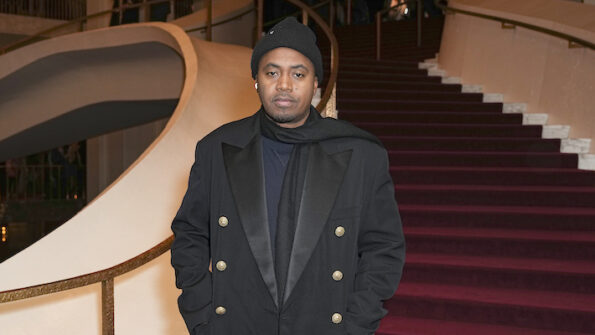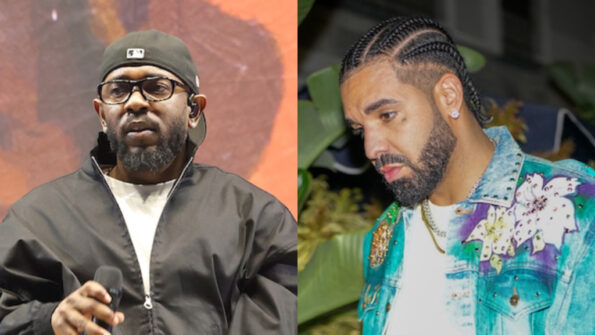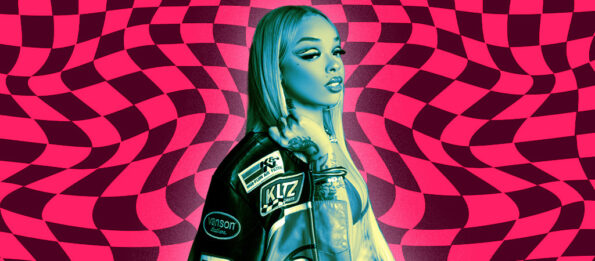In one of hip-hop’s greatest cases of “what could’ve been,” we revisit Rakim’s brief spell on Dr. Dre’s Aftermath label and why the “Oh My God” album never surfaced.
Sometimes, a change in circumstance can be the shot in the arm that an artist needs to revitalize their career. Whether it’s jumping ship to a new label, embracing independence or breaking away from a relationship that’d turned sour, starting fresh has been a source of inspiration for many MCs.
From The Game leaving and carving out his own legacy to and Birdman brokering “a golden moment” for hip-hop when he signed to Cash Money, it’s often been the case that change shouldn’t be averted, but embraced. On other occasions, what’s seemed like a brightly-lit path to greener pastures morphs into something barren and desolate. Here, we find the tragic tale of
Widely regarded as one of hip-hop’s true pioneers, it speaks volumes that in a genre that’s so steeped in conflict, no one takes umbrage with the fact that one of ’s popular aliases is “The God MC”. As one half of a duo that revolutionized hip-hop in the late 80s with Eric B, the mouthpiece behind Paid In Full, Follow The Leader and Don’t Sweat The Technique was about as impeccable a rapper as there was during his rise to worldwide acclaim.

Michael Ochs Archives/Getty Images
Still, there was a time where the New York native was languishing in the commercial doldrums. The reverence for his skills hadn’t depleted, but he’d reached something of a crossroads when it came to shifting units. His sophomore solo album, 1999’s The Master was an accomplished body of work that featured phenomenal production from the likes of and Clark Kent while displaying his lyrical prowess in all its glory. Even with its noteworthy attributes and an immense, Primo-crafted lead single “When I B On Tha Mic,” the album peaked at number 72 on the Billboard charts. To put this sharp decline into perspective, his 1997 comeback album The 18th Letter secured the number four spot with ease. Now, he was falling short of the top 50.
In his time of need, a West Coast icon parachuted into his orbit with an outstretched hand. Just as his controversy-courting protégé had helped rescue him from a time where his position seemed precarious, Dre looked to pay it forward to one of the genre’s true innovators. Announced while the Compton mastermind was on location at the video shoot for “Stan” in October 2000, Dre made the acquisition public in a brash fashion that captured the mood of his Interscope-backed imprint at the time.
“We just signed Rakim to our label, straight up,” he said, “Rakim is on Aftermath, and the name of his album is going to be Oh My God. This is going to be the biggest hip-hop record ever, straight up and coming at you from Aftermath, baby, so fuck all of y’all.”
An emphatic statement if ever there was one, it’s easy to see why the producer had high hopes for helming a new Rakim album. After all, Dre had regained the Midas touch, striking gold with not only Eminem but his own return to the fray on 2001. After admiring one another from afar, Rakim had first mentioned that “Dre‘s been putting the word out that he wants to do some beats for me” way back in 1995. A few years later, the stars had aligned at a time where Ra had found himself out on a limb.

Chris Weeks/Liaison/Getty Images
Left stationary within an ever-changing landscape, Dre’s guidance and awareness of the modern marketplace seemed like all it’d take for The God MC to reassume the throne. Yet by 2003, the ties between the two were severed without this potentially seminal album ever seeing the light of day. The pair “mutually decided to go their separate ways,” declared Ra’s manager Zach Katz in a statement. “There are reasons, but I really can’t get into them, just basically creative differences. And he’s already talking to other [labels].”
Now, there remains very little as evidence that the two ever even had a partnership. Save for the bhangra-infused hit “Addictive” with former Aftermath signee Truth Hurts and his formidable contribution to Eminem’s 8 Mile OST, all that remains is a smattering of leaked tracks including the gripping “After You Die” and “The Watcher Pt 2” from ’s The Blueprint: The Gift & The Curse.
“I’m glad Jay did it… I needed that at that time,” Rakim told The Breakfast Club in September 2019. “It lit a fire for me. I’ve been out since ‘86. Everyone was categorizing rappers, “old school” or this. To be able to be on a joint with Dre and Jay let people know that yeah, I’ve been around for a while, but I know what I’m doing.”
As for what exactly went wrong, the dialogue has been one-way. Upon relocating to California and setting up shop, an ideological divide began to open up between the Dre and Rakim, that they clearly hadn’t anticipated. During a lengthy interview with Toure on Vlad TV, Ra laid it all bare.
“I guess listening to certain songs that I did– listening to stories– I guess he wanted me to do that…a gangsta rap album, I guess,” Rakim revealed. “That’s his formula, but I thought at that point I should be doing something different. I was maturing at the time. I had grown up a little bit, trying to elevate with [my] music, as well. I’m looking at it like ‘Yeah, get with Dre.’ I wanted to make a mega project that wasn’t…of course it’s hip-hop, but I wanted everybody to be able to listen to it, get this opportunity. I wanted to make the best of it. But, like I said, we would sit in the studio, and he’d put on a beat, and he would sit next to me and be like ‘yo, I want you to talk that sh*t on this one.’ I’m like ‘Dre, that’s what you say on every track you play, bruh. When you gonna let me rhyme on something?? Why I gotta beef with everybody?'”
These squabbles aside, Rakim didn’t want to imbue his music with the more exclusionary lyrical content that Dre and his entourage had become renowned for across both The Chronic and 2001, stating, “I was looking to try and do a dope album and make sure that your daughter could listen to it, my grandmother can listen to it, and it was no bars or anything. We had a different view. We tried some things. Did a couple dope joints, but once we realized…after him trying to push me to talk crap on every song, and me being rebellious, I guess he realized yo, this ain’t gon’ work. Actually, I’m the one that told Dre, ‘I appreciate the opportunity and everything, but I’m going back to New York, bruh.’ I stayed out there another month but after that, it was like listen, I appreciate the opportunity.”
Not confined purely to interviews, the scenario was also referenced in “It’s Nothing” from his 2007 compilation tape The Archive: Live, Lost and Found as he revealed: “I went to LA to get with Dre, we tried to bridge the gap in. Take night, mix it with day, I guess it wasn’t meant to happen.”
Positioned at two different ends of the spectrum, Ra neatly summarized the parallel outlooks that both men were coming from during a conversation with HardKnockTV in 2009. “If Dre say ‘yo Ra, I want you to talk about killing somebody on this one. I’d say ‘nah, I want to talk about bringing somebody to life on this one.'” Later in that same interview, Ra leaves the door slightly ajar for them to try again: “It didn’t work out but hopefully we can hook up in the future, do a little joint together. No bridges burnt.”
Although most of his remarks focused on a lack of middle ground, one interview with Red Bull Music Academy inferred that Rakim was unwilling to relinquish the autonomy over the rhymes themselves. As we know from the thousands of dispatches from his studio, Dre is a perfectionist and once he has his vision, it becomes unwavering. This proved too much of an unassailable hurdle and, despite their somewhat uneasy truce in recent years, it made The God MC pine for the days with his old partner-in-crime.

Michael Ochs Archives/Getty Images
“He wanted me to set it off and brag about who I was and what I did. I’m glad he had a vision for me, we just couldn’t find a medium where he was happy and I was happy with either the direction, topic or whatever it was. Eric B was more that I’d say ‘yo I’m doing this on that’ and he’d be like ‘go ahead.’ That was one thing that was cool about Eric B, he never tried to detour my thought or tell me what I should be saying on a record. He left that up to me.”
For all that, despite it sounding like pure magic on paper, their visions were simply incompatible.



